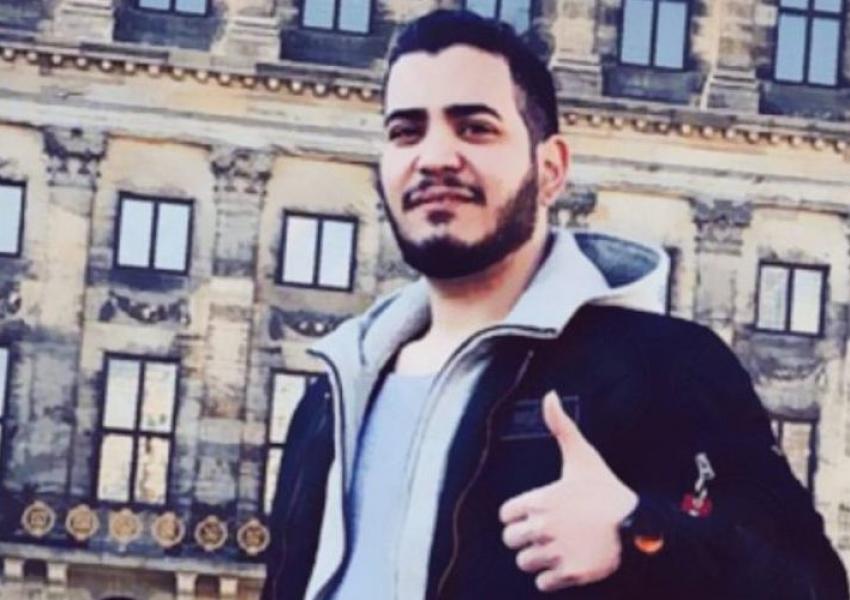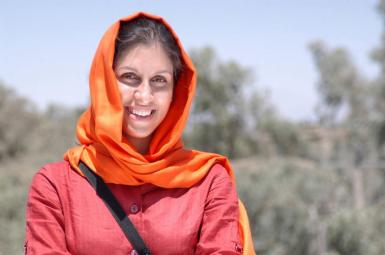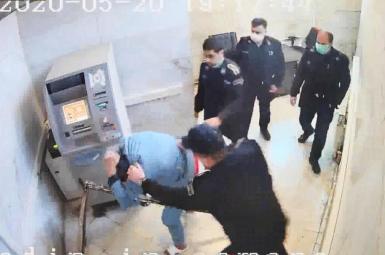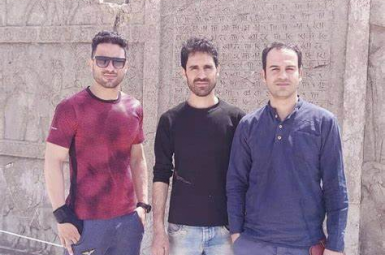
Iran Condemns 78 Protesters In Two Cities To 268 Years In Jail
A reformist news website in Tehran says Revolutionary Courts in Tehran and Behbahan, southwestern Iran, have sentenced 78 protesters arrested during the nationwide protests in November 2019 to a total of 268 years in prison. Ensaf News reported that in at least one prison in Tehran, 42 protesters were sentenced to a total 159 years in jail.
The website named Hossein Reyhani, given 11 years, and Reza Ghoraishi, sentenced to ten years in jail. Others were handed jail sentences between two to six years each.
Giving more information on sentences meted out in Behbahan, the Iranian Human Rights Activists News Agency (HRANA) reported that on October 21, a court in the city in Khuzestan province sentenced 36 protestors arrested in November 2019 to a total of 109 years jail, 2590 lashes and fines of 33 million rials.
Ensaf News reported information gathered by Ahmad Reza Haeri, a political activist jailed in Tehran for 75 days in 2019, who questioned fellow detainees. Haeri told Ensaf News he had seen around 800 protesters in the jail during that period, of which many were released on bail after interrogation at the prison’s mosque and some 80 were handed immediate jail sentences.
Other reports put the number of inmates still held in the prison at up to 240 with some given furlough due to the coronavirus pandemic. The figures released by Ensaf News are only for two prisons, in Tehran and in Behbahan, and have not been independently verified.
The government has never released overall figures for either arrests or fatalities during the protests. At the time Iranian lawmaker Hossein Naghavi Hosseini put the number of prisoners at around 7,000.
Amirhossein Moradi, a protester sentenced to death for "waging war against God"

Haeri told Ensaf News that most of those arrested in Tehran were 18 to 25 years old, and that 60 percent of them lived in Tehran, with others coming from small towns to join the protests in the capital. He added that 70 percent of those in jail did not have defense lawyers, and that inmates faced arbitrary justice, including detention in unofficial centers.
Haeri assembled such precise information, he said, because he distributed a questionnaire among prisoners and was able to read answers before wardens confiscated them. Among other data, Haeri found an average family monthly income between 15 to 50 million rials, and that rap music was popular among inmates.
On September 1, Amnesty International released a 77-page report about mass arrests, disappearances and torture since Iran’s 2019 November protests, based on in-depth interviews with 60 victims or their relatives or close acquaintances, as well as written information from several hundred others, and an analysis of video footage and court documents.
Amnesty said its report “paints a harrowing picture of what happened to some of the 7,000 men, women and children arrested during the brutal crackdown in response to last year’s protests.”
According to Amnesty, more than 500 people faced unfair criminal proceeding. National security charges included “gathering and colluding to commit crimes against national security,” “spreading propaganda against the system,” “disrupting public order” and “insulting the Supreme Leader.”
The report observed that of those arrested “at least three - Amirhossein Moradi, Mohammad Rajabi and Saeed Tamjidi” had been sentenced to death for “enmity against God” for acts of vandalism while another Hossein Reyhani, awaited trial on charges carrying the death penalty.
Since September, the United States and three European Union members (Germany, UK and France) as well as United Nations Chief Antonio Guterres have condemned the violation of human rights by Iran and for an end to arbitrary arrests, unfair trials and inhumane treatment of inmates.






